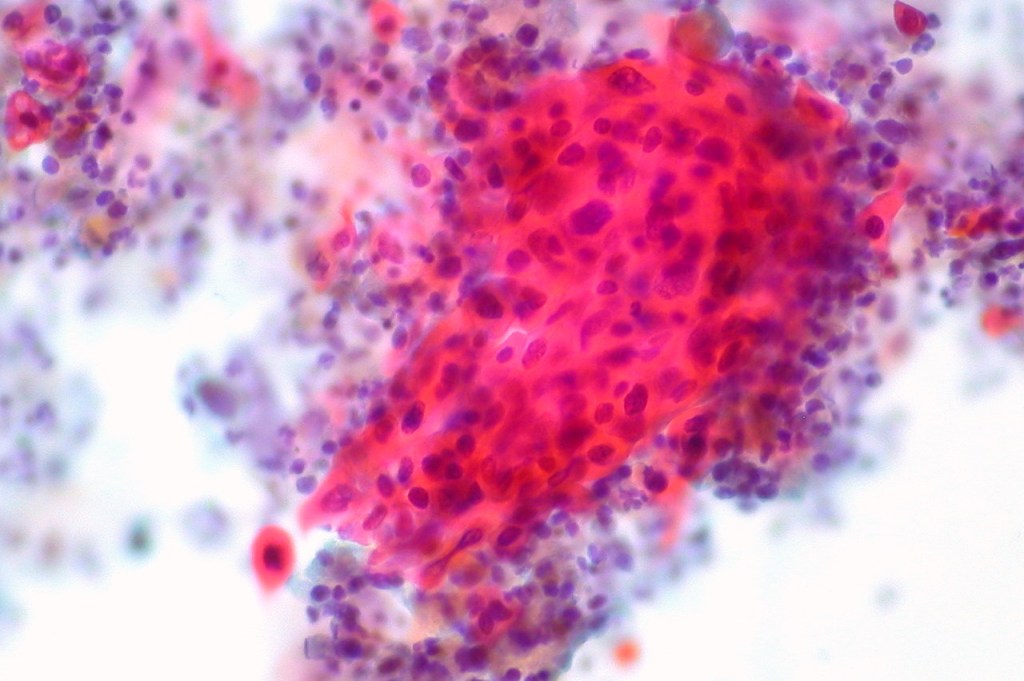Paige, the startup that spun out of the Memorial Sloan Kettering Cancer Center and launched in 2018 to help advance cancer research and care by applying AI to better understand cancer pathology, is today announcing a milestone in its growth story: it has raised a further $20 million from Goldman Sachs and Healthcare Venture Partners, closing out its Series B at $70 million.
Leo Grady, Paige’s CEO, says the funding will go toward several areas.
It will be used for hiring; to continue expanding its partnerships with biopharmaceutical companies (deals that have not yet been made public); and to continue investing in clinical work, based around algorithms it has built and trained using more than 25 million pathology slides in MSK’s archive, plus IP related to the AI-based computational pathology that underpins Paige’s work. It will also be used to help it expand to the U.K. and Europe. Paige has a CE mark to be used clinically in both regions and the startup already has beta sites in the U.K. and EU, but it hasn’t had a fully commercial launch in either region, Grady said.
Paige — which has now raised more than $95 million with other investors, including Breyer Capital, MSK and Kenan Turnacioglu — is keeping quiet about its valuation. But for some context, we noted that it was around $208 million when the first tranche of the round was announced — $45 million in December 2019, with a further $5 million in April. It attracted this latest $20 million in part because business has been strong, Grady noted. As a result, despite it being a generally tough climate for raising money right now, Paige didn’t face those challenges.
“The climate in which Goldman made its initial investment” — the $5 million round in April — “was when COVID-19 had hit hard and they were realising the magnitude,” Grady said. “They wanted to see how things played out for Paige in the economy. But the way it has been going has been encouraging.”
Indeed, a lot of attention these days is focused around the current public health crisis making its way around the world in the form of COVID-19, and the knock-on effects that it is having across the economy and socially. Paige’s growth in that context has been interesting.
We’re still in the early stages of understanding COVID-19 and how it interacts with other conditions (such as cancer) — and it’s not an area that Paige is directly exploring in its work. But in the meantime, its platform — based around digitised slides — has come into its own for clinicians and others who can no longer regularly physically visit laboratories.
Paige’s enterprise imaging system — the company was co-founded by Dr Thomas Fuchs, known as the “father of computational pathology” and is the director of Computational Pathology in The Warren Alpert Center for Digital and Computational Pathology at Memorial Sloan Kettering, as well as a professor of machine learning at the Weill Cornell Graduate School of Medical Sciences; and Dr David Klimstra, chairman of the department of pathology at MSK — allows users to view digital slides remotely, and while all hardware manufacturers today have digital viewers, these are proprietary, tied to those scanners and “not built for high performance,” Grady noted.
Paige’s platform allows its users not only to share research and primary data without physically sending slides around, but to use high performance software built to “read” the data in a more comprehensive way than clinicians and researchers would otherwise be able to do. That initially has been applied to work in prostrate and breast cancers but is now also being explored around other cancers as well, Grady said. “We’re adding in information to the workflow, boosting the confidence and quality of data. The first piece [the platform and the slides] enables the second piece.”
The Goldman Sachs investment is coming from the financial services giant’s merchant banking division, and as part of it, David Castelblanco, MD at Goldman Sachs, has joined Paige’s board of directors.
“We have been very impressed with the company and its pace of development,” he said in a statement. “We are excited to increase our commitment to support Leo, Thomas and the Paige team’s transformative work with artificial intelligence and machine learning in the cancer field.”
“We initially invested in Paige recognizing the potential of their products to add significant value to the industry and impact the future of cancer care,” added Jeffrey C. Lightcap, senior managing director of Healthcare Venture Partners. “After seeing Paige make tremendous progress in such a short period, we added to our investment to further accelerate their growth.”































Comment